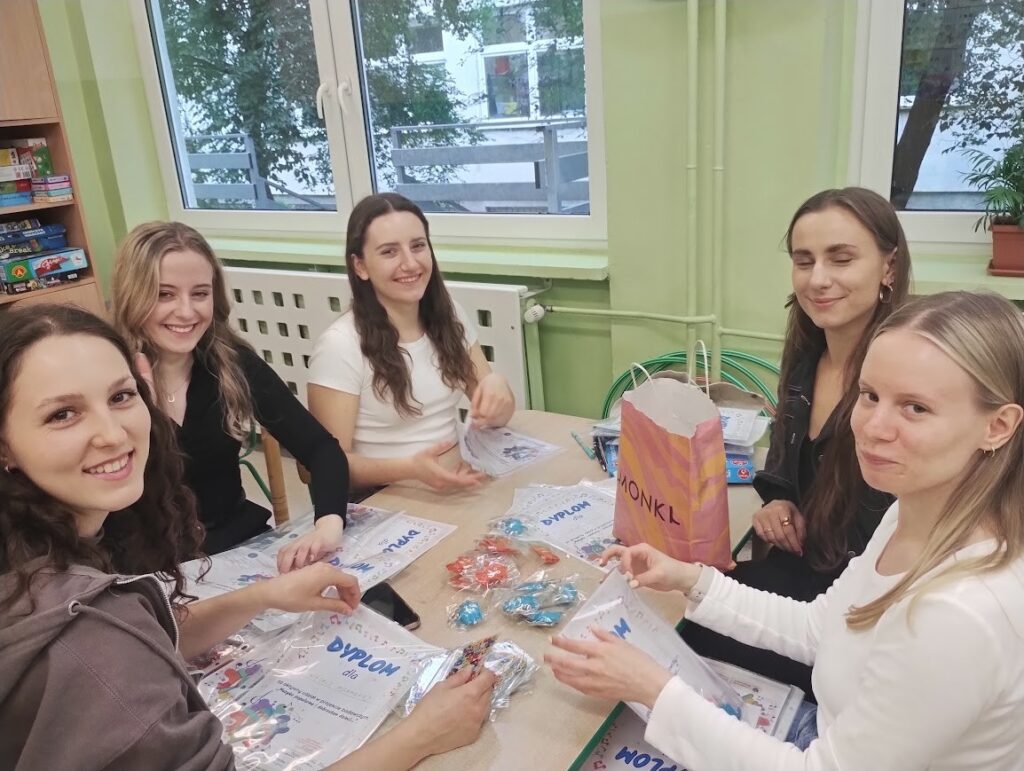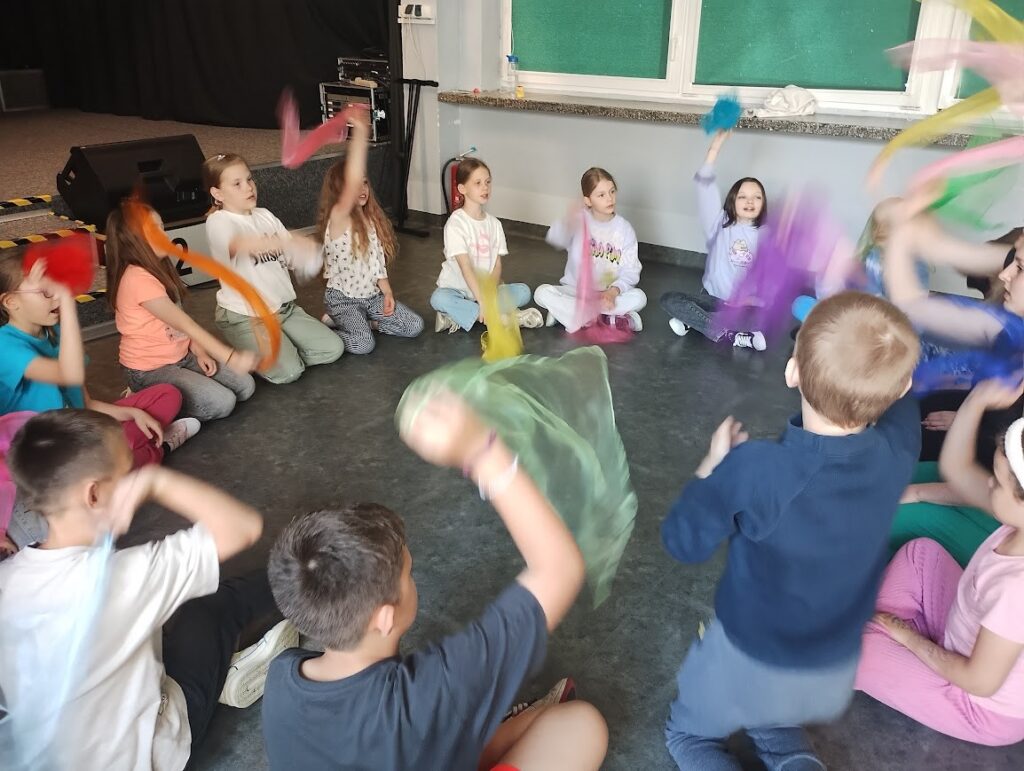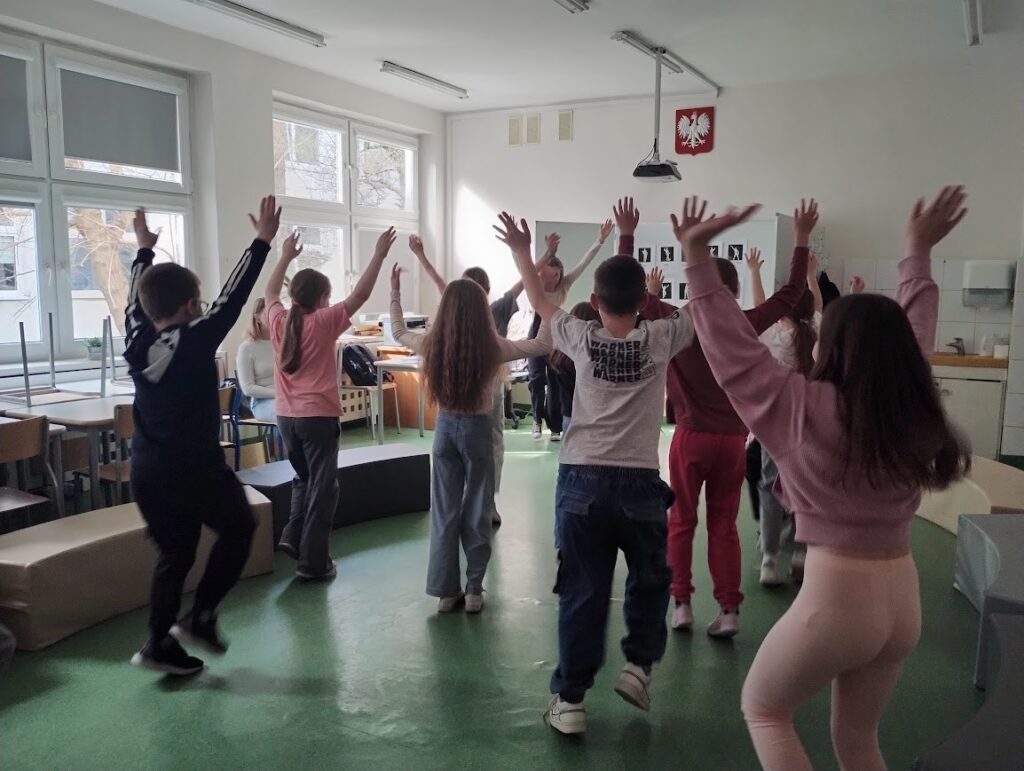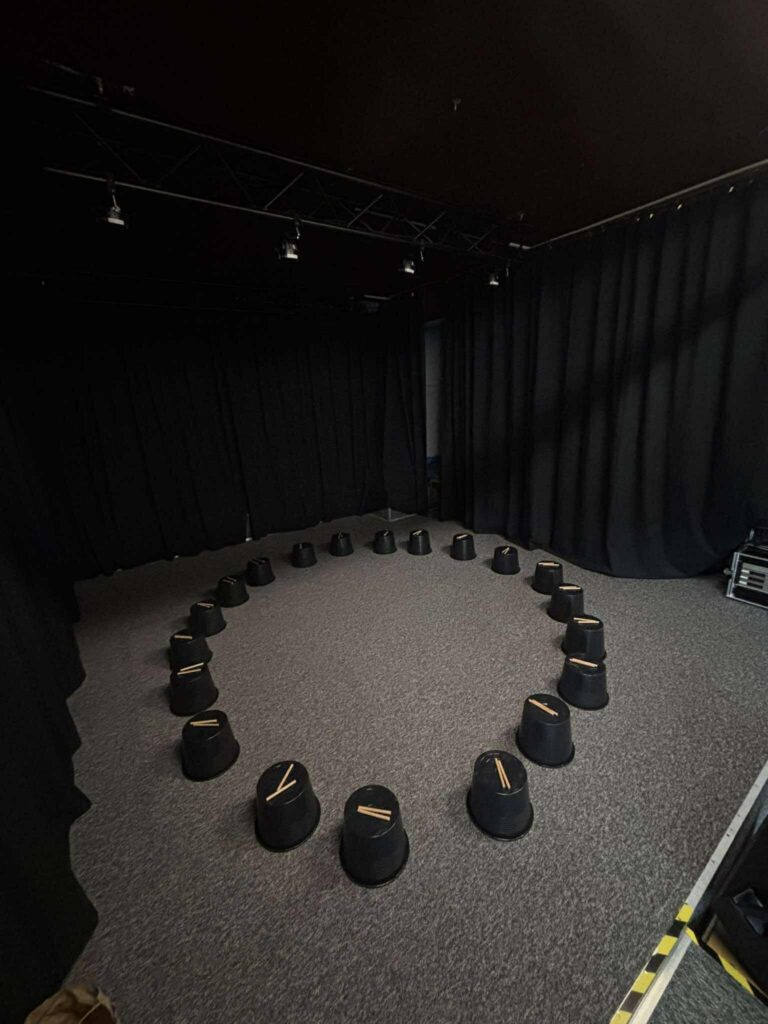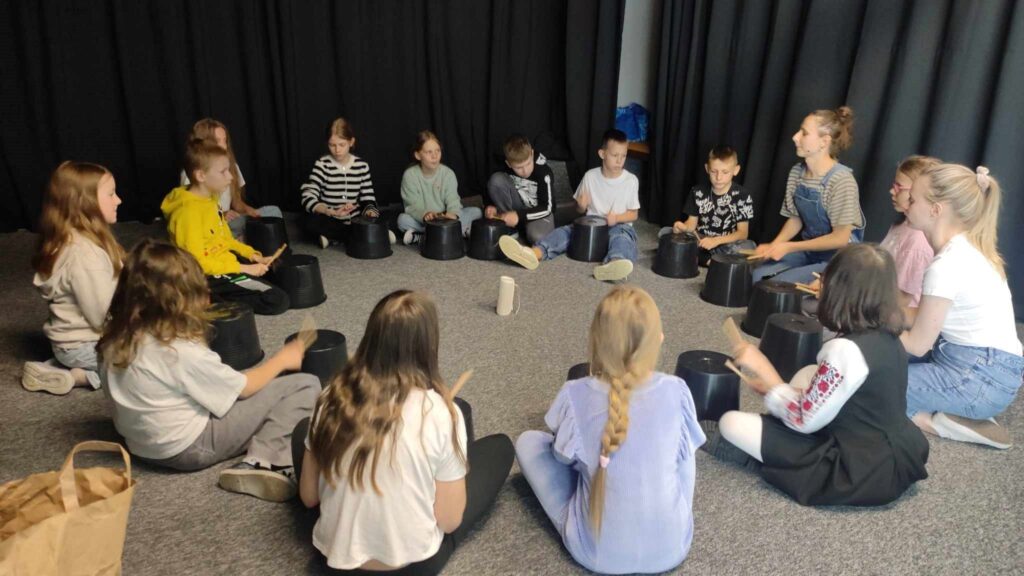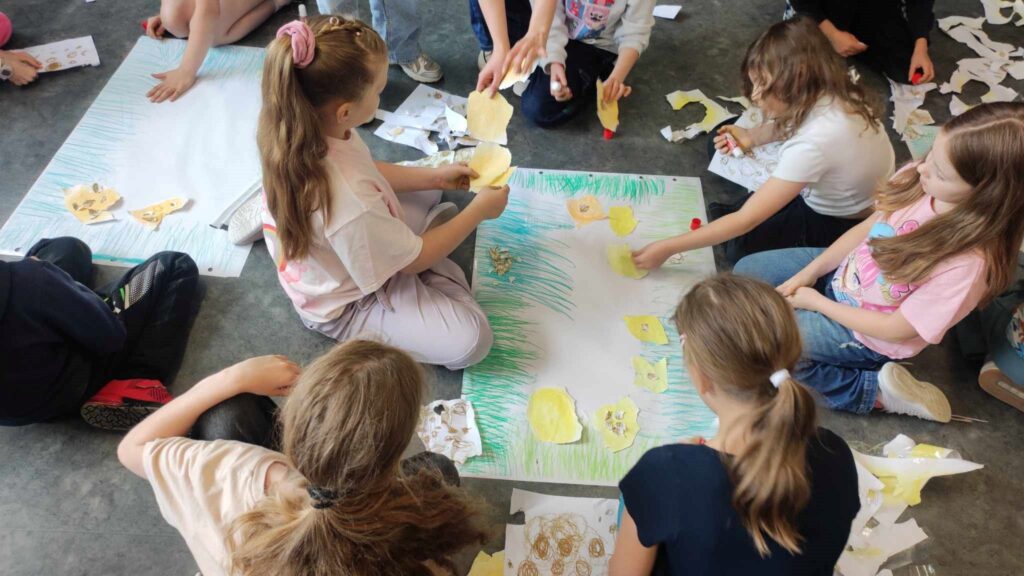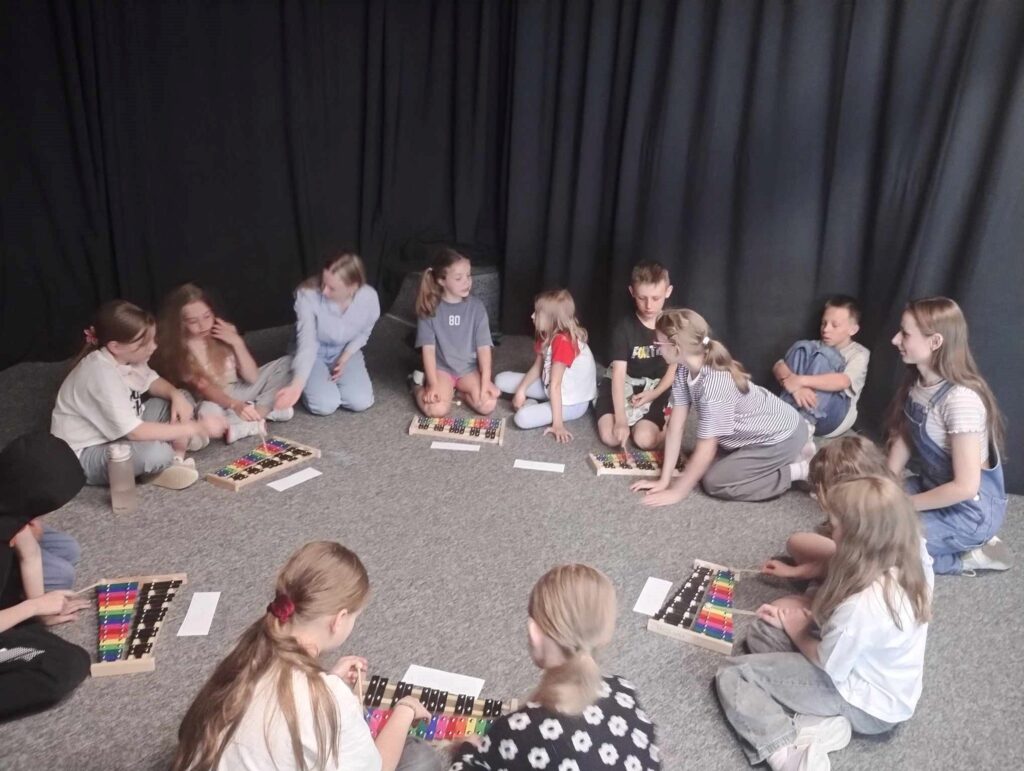EECERA Conference 2025 – Guest Blog # 10: Popular Music and the Well-being of Children
Posted 8th August 2025
One of a series of short blog posts by presenters who will be sharing their work at the upcoming annual conference in Bratislava, Slovakia. Any views expressed in this post are those of the author(s) and do not necessarily reflect the official stance of their affiliated institution or EECERA.
Popular Music and the Well-being of Children with Wartime Migration Experience: A Participatory Approach
By Dr Marta Kondracka-Szala, University of Wroclaw
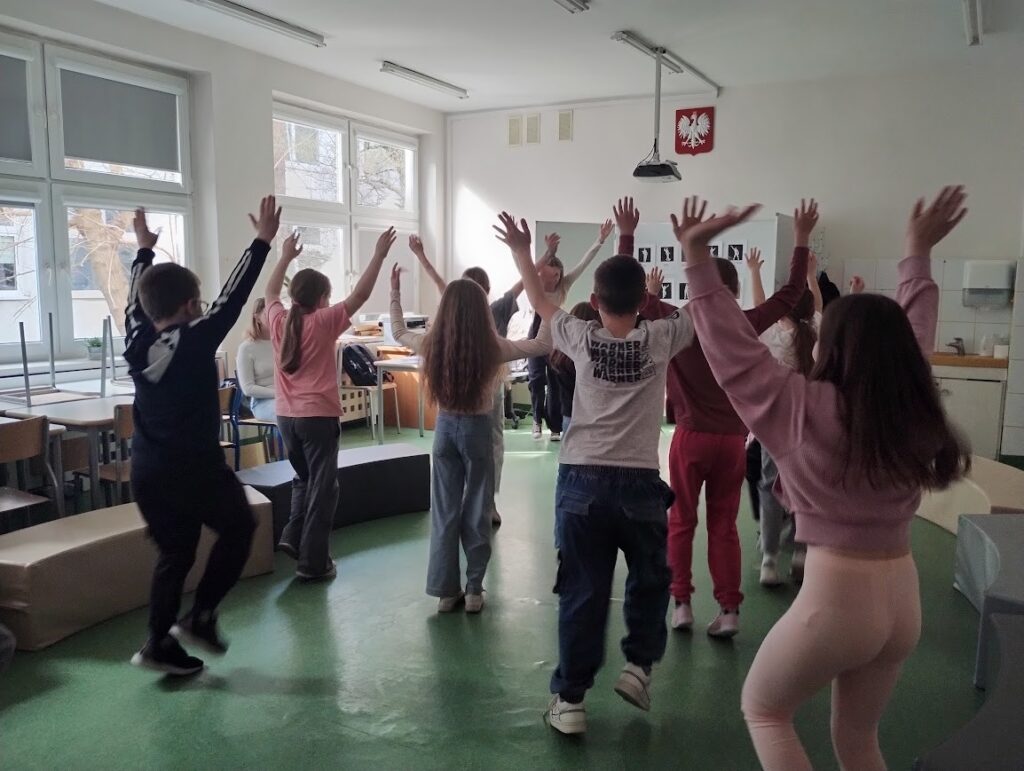
How can children’s favorite songs create moments of healing, belonging, and joy after wartime migration?
The experience of war and forced migration profoundly affects children’s well-being. Among those most vulnerable are Ukrainian children who, due to the ongoing war, have had to leave behind their homes, friends, and familiar environments. As educators and researchers, we face a vital question: how can we create inclusive spaces that not only support learning but also nurture children’s emotional resilience and sense of belonging?
In my research, I explore the potential of popular music—the songs and sounds that children already love and connect with—to strengthen well-being and social integration. This work is part of a broader mission to give children a voice in shaping the environments that influence their lives.
Why Popular Music?
Popular music is everywhere: in films, games, cartoons, and social media. For children, it often reflects their identities, friendships, and shared culture. Unlike formal music education that may focus on classical or folk traditions, popular music resonates with children’s everyday experiences. It offers a shared cultural code that transcends language barriers, enabling connection and collaboration between peers.
Research confirms that music can reduce stress, alleviate trauma, and improve emotional health (MacDonald et al., 2013; Ferguson & Sheldon, 2013). Studies on migrant children highlight the urgent need for inclusive approaches to help them adapt, rebuild a sense of normalcy, and find joy in their new surroundings (UNESCO, 2019; OECD, 2022). Popular music, which children already know and love, is a natural tool to meet these needs.
Research Aims and Framework
My study focuses on early primary school children, including those with wartime migration experiences. The key goals are to:
1. Identify children’s preferred popular music and explore its role in peer interactions.
2. Understand how self-selected music supports emotional well-being and belonging.
3. Evaluate whether structured yet child-led music sessions can enhance emotional resilience and social integration.
The project is guided by Bronfenbrenner’s bioecological model (1979), which highlights the layered social and cultural influences on a child’s development. It also draws on Seligman’s PERMA model of well-being (2012), focusing on Positive Emotion, Engagement, Relationships, Meaning, and Accomplishment, and praxial music education theory (Elliott, 2009; Regelski, 2008), which values music as a participatory and meaningful social practice.
A Unique Participatory Methodology
What makes this research particularly distinctive is its participatory approach. Rather than being passive participants, children become co-researchers, shaping the content and flow of the music activities.
The study is carried out in three stages:
1. Co-creating playlists – Children select their favorite songs, discuss what they mean to them, and explain why certain tracks make them feel happy, safe, or connected.
2. Designing activities – Together with their peers, children help create music sessions that involve movement, rhythm, and collaborative performance.
3. Active participation and reflection – During the sessions, children express themselves through drawing, movement, and discussion, sharing their perspectives on how music influences their emotions and relationships.
This qualitative approach, inspired by the Mosaic methodology (Clark & Moss, 2005), is combined with a quasi-experimental design. Well-being is measured using adapted tools such as the Me & My Feelings (M&Mf) questionnaire, the Student Life Satisfaction Scale (SLSS), and the Student Resilience Survey (SRS). The study involves 40 children in total: 20 in the experimental group (10 Ukrainian and 10 Polish) and 20 in the control group (10 Ukrainian and 10 Polish).
Preliminary Findings
The early findings reveal a complex yet promising picture. While the overall effects of the popular music sessions are multifaceted, some outcomes stand out as positive. Children display moments of increased engagement, stronger peer connections, and spontaneous emotional expression, particularly when the music aligns with their personal preferences. For Ukrainian children, popular music remains a meaningful link to their cultural identity while creating opportunities for shared experiences with Polish peers.
The participatory methodology, which places children’s voices, agency, and creativity at the core of the process, provides rich and authentic insights into how music is experienced by children and how it can influence their everyday well-being.
Why This Research Matters
Music has the power to heal and connect. By integrating popular music into educational settings, we can create inclusive, child-centered practices that embrace cultural diversity and strengthen resilience. Although the findings are nuanced, they point to the potential of participatory music-based interventions to support well-being, especially in contexts shaped by migration and trauma.
What to Expect at EECERA 2025
In my EECERA 2025 presentation, I will share in-depth findings from this project, including examples of children’s playlists, creative expressions, and reflections on their experiences. I will also discuss how the participatory approach can be applied in other multicultural and post-crisis educational contexts.
I warmly invite colleagues interested in music, well-being, and participatory research to join the session, share ideas, and explore together how we can build inclusive, emotionally supportive environments for all children.
Follow my work:
– ORCID: https://orcid.org/0000-0003-0539-7820
– LinkedIn: https://www.linkedin.com/in/marta-kondracka-szala-6994758b/
– Google Scholar: https://scholar.google.com/citations?user=ug2n6EwAAAAJ&hl=en&oi=ao
Dr Marta Kondracka-Szala will present the work referred to in this blog in Symposium Set D (Wednesday, the 27th of August). (Schedule liable to change; please refer to final programme for details).
